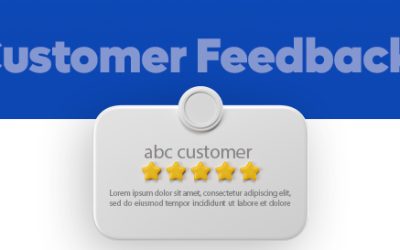With access to the Internet 24/7, people prefer to search for healthcare information online and this is transforming the search landscape. With innovative emerging technologies, healthcare businesses and marketers should look for more opportunities to grow their business and digital marketing for healthcare is important to stay competitive. The latest trend is voice search, and spoken commands are quickly becoming the norm for accessing content from search engines. Searches have transformed from text input to voices driven on natural language and conversation. Increasing use of mobile use has led to the adoption of voice interface. The implication for voice search is specifically to deliver the single right answer and to get the single right answer we need Schema.
Schema markup is a structured data markup that helps the search engines understand the context of your website. It organizes and structures information on the website to associate entities with each other. It comes in 414 types with 905 properties and 114 enumeration values. So, it is important to understand which type of schema should be used with your content. Schema makes a significant impact on SEO and voice search devices like Google Home, Alexa, Siri and so on. For SEO, the impact of schemas is usually in featured snippets, rich snippets, and Position 0 rankings.
Testing and Measuring Schema
Google’s Structured Data testing Tool helps to know whether you have correctly implemented schema markup or not. This tool evaluates the markup and finds out any errors that might be on the page so that you can correct them. It helps to ensure that you get the full benefits of using schema markup. So, to measure the success of schema deployment looks for the following things:
- Position movement
- Incremental impressions
- Incremental organic sessions
- Incremental organic driven leads
- Incremental organic driven conversion
Speakable Schema for Voice Search
Today text to speech is on the rise with smart speakers like Amazon Echo, Google Home etc. There is a need for authors and publishers to be able to easily call out portions of a webpage that are particularly appropriate for reading out aloud. Speakable schema helps digital assistants know what you want to be said for the content on the page. Speakable schema is at present available in beta for news articles. Marketers can implement speakable schema markup as part of Google News or Bing News. For this, you must consider the following things:
- Follow the Google News or Bing News guidelines using Google News Producer or Publish Center.
- Do not use Schema on the entire article, use only for important points.
- Speakable markup should be for text content only.
- Speakable text should be 2 or 3 sentences only and take only 30 seconds to read.
- Break up the story into short sentences.
At present Speakable schema is available for news publishers, but in the future, it will be used by other websites. Now it is used within the news context and it tells the search engines and the digital assistants what needs to be verbalized.
Implement Speakable Schema
If you wish to implement speakable schema in the future, then it is important to consider the spoken content that you would want for a given page. The schema markup tells the search engine what that content means. It creates an enhanced description, otherwise known as a rich snippet which appears in search results. Schema markup is not a determining factor or a ranking factor. If you don’t have schema it does not follow that your content will never become a featured snippet, though becoming a featured snippet may be more challenging.
If you want a higher chance of being the single right answer for voice searchers, then you have to understand where digital assistants get the answers from – featured snippets, directory listings, voice actions or chatbots, knowledge graph, and chit chat /persona responses.
Optimizing for Voice Search Means Optimizing for Featured Snippets
To optimize for both voice search and featured snippets, then consider the following tips:
- Identify the questions where you are currently ranking in the top 10
- Find out the questions related to that query
- Decide how to structure your answer
- Offer a straightforward answer that adds value
- The answers should sound natural when spoken aloud
- Make sure that the character count fits the mobile screen
Optimizing Different Types of Voice Search
Voices queries are divided into three types- informational, navigational and transactional. Most people use voice queries for searching quick facts (68 percent), followed by asking directions (65 percent), searching for a product or service (52 percent), searching for a business (47 percent) and so on.
- Optimizing for information queries:
- Featured snippet optimization
- Better page speed
- Implement schema markup
- Write in simple conversational language
- Optimizing for navigational queries:
- Own your directory listings
- Get customer reviews
- Post location optimized, on site content
- Optimizing for transactional queries:
- Create focused content
- Get customer reviews
- Publish FAQs
- Create voice action or chatbots
- Write in a conversational tone or language
According to the findings of Microsoft’s 2019 report on Consumer Adoption of Voice Technology and Digital Assistants:
- Adoption: 75 percent of households will have at least one smart speaker by 2020.
- Usage: 69 percent of respondents have used digital assistants.
- Trust: 41 percent of respondents have concerns about trust, privacy and passive listening.
- vCommerce: More than half of consumers expect their digital assistants to help make retail purchases within the next 5 years.
- Functionality: Consumers will not divulge PII (personally identifiable information) without a substantial reward.
Schema markup enables search engines to return more informative results for users. It is a new form of optimization that is not well utilized at present. A website using schema markup will be visible to users, and users can see what the website is about, what they do, and where they are. Such websites will rank better in search engine result pages (SERPs) compared to websites with no schema markup. It is surprising however, that only few businesses have taken full advantage of schema markup. Healthcare businesses looking to rank high and improve search results can consider hiring reliable medical SEO services that can help implement schema markup as well as other SEO strategies.




